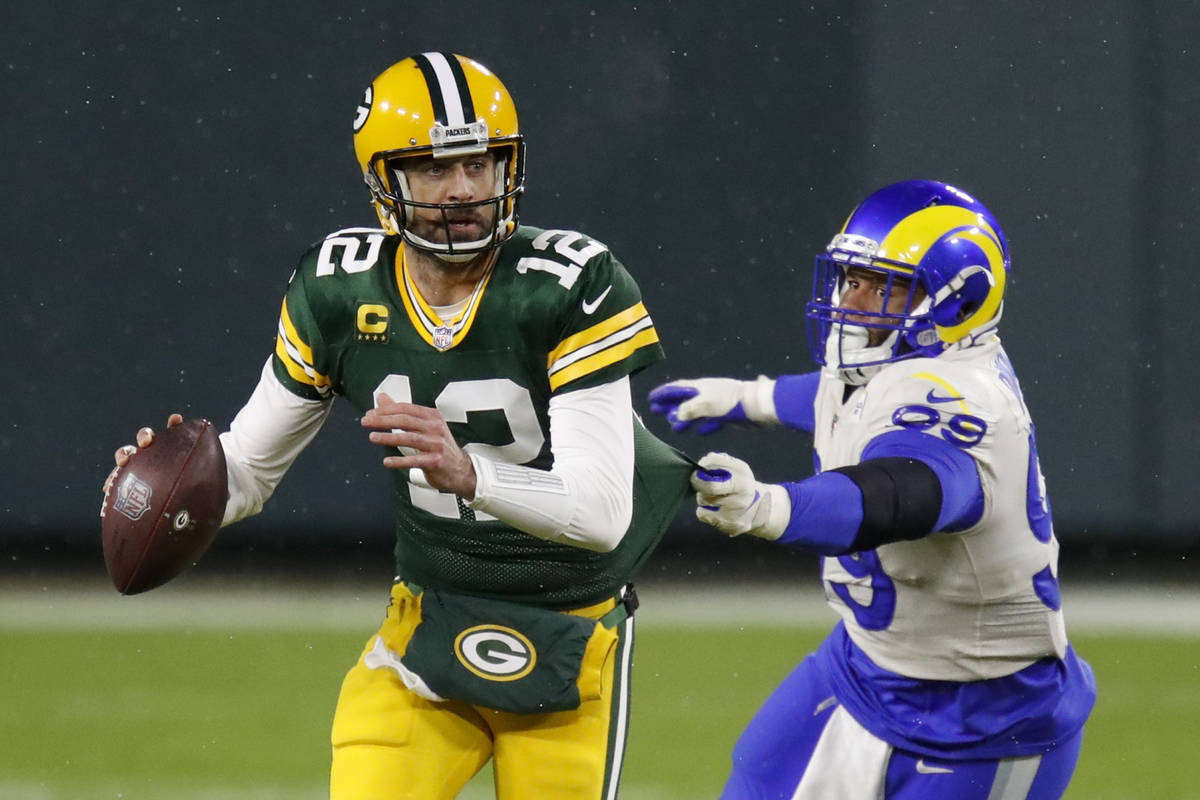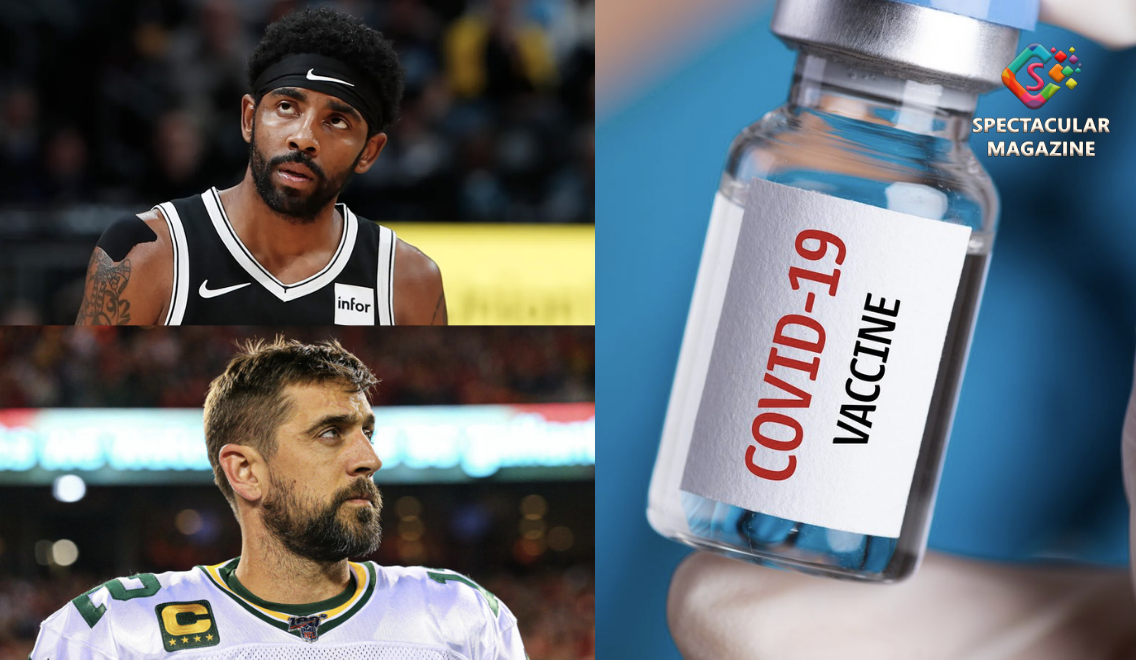Vaccine Hesitancy: Bigger Than Sports
On Tuesday, Aaron Rodgers returned to the Sirius XM Pat McAfee Show to defend his comments surrounding his vaccination status. At the beginning of the season, Rodgers told the press and league officials that he was “immunized.” Rodgers later admitted that he was using alternative forms of medicine suggested by Joe Rogan, due to his hesitancy to take the COVID-19 vaccine, which Rodgers said stemmed from an allergy he has to one of the vaccine’s ingredients.

Rodgers tested positive for COVID-19 and has since been fined, along with the Green Bay Packers, for breaking the NFL’s COVID-19 protocols, however, Rodgers did not receive a suspension. Aaron Rodgers is not the first professional athlete to take exception to the vaccine: Brooklyn Nets star point guard Kyrie Irving has been adamant about his refusal to take the vaccine. Like Rodgers, Irving claims to not be “anti-vax,” with Irving insisting he is acting as a “voice for the voiceless” (NBC Sports).
Vaccine hesitancy is not a new issue in our society, but the microscope in which mega athletes in our country live under only inflames an already fiery issue. Neither the NFL nor the NBA has established vaccine mandates, but by establishing COVID-19 protocols, leagues are incentivizing teams to become fully vaccinated as it is now a competitive advantage. NFL quarterback Ryan Tannehill did not want to get vaccinated, but he said “They’re going to try and make your life miserable if you don’t” (ABC).
Like most things, this issue is bigger than basketball, or football, or any sport for that matter. But also like most things, these leagues are a microcosm of public sentiments around the country. Will Norton, the Director for Sport Research at Umass-Amherst said that “the divides that we face in our society are
reflected in our sports teams and athletes.”
When asked about vaccinations among professional athletes Norton said, “I don’t think we’re going to see league [vaccine] mandates because it is a very controversial issue within the players association. The players within the players association can’t settle on a uniform policy.”

Meanwhile, the Nets’ point guard Kyrie Irving is still serving a four-year term as Vice President of the NBPA and remains an influential figure in modern society. Irving, is not foreign to controversy, having dealt with the fallout of his “flat-earth” fiasco, which he later admits was because he fell victim to a YouTube “rabbit hole,” according to the Washington Post.
Chief of the National Basketball Players Association Michele Baker told the NY Post “I’m not going to comment on Kyrie, but I will say you guys need to stop focusing on those 20-plus players who are not vaccinated. Our numbers are 95, 96 percent [vaccinated]. That well beats the national average,” Baker says. “What you need to do is ask what we can do to get the rest of the country to do what our players have done.”
Amidst the spread of misinformation among public figures, this sentiment has been met with resistance, inside and outside of the NBA and other sports leagues. The NFL and the NBA are comprised of majority Black athletes, with research showing that Blacks are “less willing than Whites to receive the vaccine” According to surveys done by SUNY Downstate Health Sciences University Katherine Kricorian illustrate that “mistrust of the vaccine among Black respondents was significantly higher than other racial/ethnic groups.”
Kricorian goes on to explain that many Black people reported that they would feel more comfortable taking the vaccine if they saw Black medical professionals endorsing it. But the conspiracy theories and social media rabbit holes are only creating more confusion and causing more harm, especially within demographics that are already most affected by the pandemic.
Many people need to understand that white people and Black people do not have the same experience with health care in this country. There has been a history of underdiagnosis, overdiagnosis, misdiagnosis, and mistreatment of Black people within the medical industry. The healthcare industry is not exempt from the poisons of racism, with the Tuskegee experiments being a prime historical example of the medical mistreatment of Black people in this country.
In order to have a more productive conversation about health and vaccinations in this country, we have to recognize the inequalities in our shared history, while promoting honest and open conversations based on facts from trusted medical professionals.


